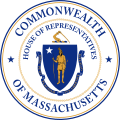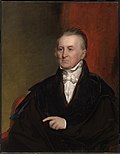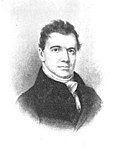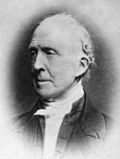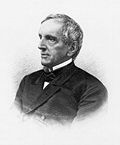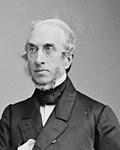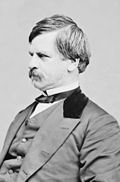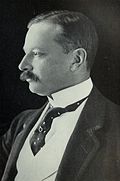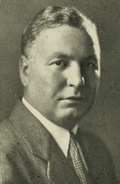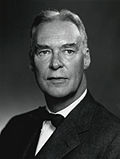- ▌ John Barrett (D, 1st Berkshire)
- ▌ Tricia Farley-Bouvier (D, 2nd Berk.)
- ▌ Leigh Davis (D, 3rd Berk.)
- ▌ Michael Chaisson (R, 1st Bristol)
- ▌ Jim Hawkins (D, 2nd Bris.)
- ▌ Lisa Field (D, 3rd Bris.)
- ▌ Steven S. Howitt (R, 4th Bris.)
- ▌ Justin Thurber (R, 5th Bris.)
- ▌ Carole Fiola (D, 6th Bris.)
- ▌ Alan Silvia (D, 7th Bris.)
- ▌ Steven Ouellette (D, 8th Bris.)
- ▌ Christopher Markey (D, 9th Bris.)
- ▌ Mark Sylvia (D, 10th Bris.)
- ▌ Christopher Hendricks (D, 11th Bris.)
- ▌ Norman Orrall (R, 12th Bris.)
- ▌ Antonio Cabral (D, 13th Bris.)
- ▌ Adam Scanlon (D, 14th Bris.)
- ▌ Dawne Shand (D, 1st Essex)
- ▌ Kristin Kassner (D, 2nd Ess.)
- ▌ Andy Vargas (D, 3rd Ess.)
- ▌ Estela Reyes (D, 4th Ess.)
- ▌Vacant (5th Ess.)
- ▌ Hannah Bowen (D, 6th Ess.)
- ▌ Manny Cruz (D, 7th Ess.)
- ▌ Jenny Armini (D, 8th Ess.)
- ▌ Donald Wong (R, 9th Ess.)
- ▌ Daniel Cahill (D, 10th Ess.)
- ▌ Sean Reid (D, 11th Ess.)
- ▌ Thomas Walsh (D, 12th Ess.)
- ▌ Sally Kerans (D, 13th Ess.)
- ▌ Adrianne Ramos (D, 14th Ess.)
- ▌ Ryan Hamilton (D, 15th Ess.)
- ▌ Francisco E. Paulino (D, 16th Ess.)
- ▌ Frank A. Moran (D, 17th Ess.)
- ▌ Tram Nguyen (D, 18th Ess.)
- ▌Vacant (1st Frnk.)
- ▌ Susannah Whipps (I, 2nd Frnk.)
- ▌ Todd Smola (R, 1st Hpdn.)
- ▌ Brian Ashe (D, 2nd Hpdn.)
- ▌ Nicholas Boldyga (R, 3rd Hpdn.)
- ▌ Kelly Pease (R, 4th Hpdn.)
- ▌ Patricia Duffy (D, 5th Hpdn.)
- ▌ Michael Finn (D, 6th Hpdn.)
- ▌ Aaron Saunders (D, 7th Hpdn.)
- ▌ Shirley Arriaga (D, 8th Hpdn.)
- ▌ Orlando Ramos (D, 9th Hpdn.)
- ▌ Carlos Gonzalez (D, 10th Hpdn.)
- ▌ Bud Williams (D, 11th Hpdn.)
- ▌ Angelo Puppolo (D, 12th Hpdn.)
- ▌ Lindsay Sabadosa (D, 1st Hampshire)
- ▌ Homar Gomez (D, 2nd Hpsh.)
- ▌ Mindy Domb (D, 3rd Hpsh.)
- ▌ Margaret Scarsdale (D, 1st Middlesex)
- ▌ James Arciero (D, 2nd Mid.)
- ▌ Kate Hogan (D, 3rd Mid.)
- ▌ Danielle Gregoire (D, 4th Mid.)
- ▌ David Linsky (D, 5th Mid.)
- ▌ Priscila Sousa (D, 6th Mid.)
- ▌ Jack Lewis (D, 7th Mid.)
- ▌ James Arena-DeRosa (D, 8th Mid.)
- ▌ Thomas M. Stanley (D, 9th Mid.)
- ▌ John J. Lawn (D, 10th Mid.)
- ▌ Amy Mah Sangiolo (D, 11th Mid.)
- ▌ Greg Schwartz (D, 12th Mid.)
- ▌ Carmine Gentile (D, 13th Mid.)
- ▌ Simon Cataldo (D, 14th Mid.)
- ▌ Michelle Ciccolo (D, 15th Mid.)
- ▌ Rodney Elliott (D, 16th Mid.)
- ▌ Vanna Howard (D, 17th Mid.)
- ▌ Tara Hong (D, 18th Mid.)
- ▌ Dave Robertson (D, 19th Mid.)
- ▌ Bradley Jones Jr. (R, 20th Mid.)
- ▌ Kenneth Gordon (D, 21st Mid.)
- ▌ Marc Lombardo (R, 22nd Mid.)
- ▌ Sean Garballey (D, 23rd Mid.)
- ▌ Dave Rogers (D, 24th Mid.)
- ▌ Marjorie Decker (D, 25th Mid.)
- ▌ Michael Connolly (D, 26th Mid.)
- ▌ Erika Uyterhoeven (D, 27th Mid.)
- ▌ Joe McGonagle (D, 28th Mid.)
- ▌ Steven Owens (D, 29th Mid.)
- ▌ Richard Haggerty (D, 30th Mid.)
- ▌ Michael Day (D, 31st Mid.)
- ▌ Kate Lipper-Garabedian (D, 32nd Mid.)
- ▌ Steven Ultrino (D, 33rd Mid.)
- ▌ Christine Barber (D, 34th Mid.)
- ▌ Paul Donato (D, 35th Mid.)
- ▌ Colleen Garry (D, 36th Mid.)
- ▌ Dan Sena (D, 37th Mid.)
- ▌ Bruce Ayers (D, 1st Norfolk)
- ▌ Tackey Chan (D, 2nd Norf.)
- ▌ Ron Mariano (D, 3rd Norf.)
- ▌ James M. Murphy (D, 4th Norf.)
- ▌ Mark Cusack (D, 5th Norf.)
- ▌ William C. Galvin (D, 6th Norf.)
- ▌ Richard Wells (D, 7th Norf.)
- ▌ Ted Philips (D, 8th Norf.)
- ▌ Marcus Vaughn (R, 9th Norf.)
- ▌ Jeffrey Roy (D, 10th Norf.)
- ▌ Paul McMurtry (D, 11th Norf.)
- ▌ John H. Rogers (D, 12th Norf.)
- ▌ Joshua Tarsky (D, 13th Norf.)
- ▌ Alice Peisch (D, 14th Norf.)
- ▌ Tommy Vitolo (D, 15th Norf.)
- ▌ Michelle Badger (D, 1st Plymouth)
- ▌ John Gaskey (R, 2nd Plym.)
- ▌ Joan Meschino (D, 3rd Plym.)
- ▌ Patrick J. Kearney (D, 4th Plym.)
- ▌ David DeCoste (R, 5th Plym.)
- ▌ Kenneth Sweezey (R, 6th Plym.)
- ▌ Alyson Sullivan (R, 7th Plym.)
- ▌ Dennis Gallagher (D, 8th Plym.)
- ▌ Bridget Plouffe (D, 9th Plym.)
- ▌ Michelle DuBois (D, 10th Plym.)
- ▌ Rita Mendes (D, 11th Plym.)
- ▌ Kathleen LaNatra (D, 12th Plym.)
- ▌ Adrian Madaro (D, 1st Suffolk)
- ▌ Daniel Joseph Ryan (D, 2nd Suff.)
- ▌ Aaron Michlewitz (D, 3rd Suff.)
- ▌ David Biele (D, 4th Suff.)
- ▌ Christopher Worrell (D, 5th Suff.)
- ▌ Russell Holmes (D, 6th Suff.)
- ▌ Chynah Tyler (D, 7th Suff.)
- ▌ Jay Livingstone (D, 8th Suff.)
- ▌ John F. Moran (D, 9th Suff.)
- ▌ Bill MacGregor (D, 10th Suff.)
- ▌ Judith García (D, 11th Suff.)
- ▌ Brandy Fluker Oakley (D, 12th Suff.)
- ▌ Daniel J. Hunt (D, 13th Suff.)
- ▌ Robert Consalvo (D, 14th Suff.)
- ▌ Sam Montaño (D, 15th Suff.)
- ▌ Jessica Giannino (D, 16th Suff.)
- ▌ Kevin Honan (D, 17th Suff.)
- ▌ Michael Moran (D, 18th Suff.)
- ▌ Jeff Turco (D, 19th Suff.)
- ▌ Kimberly Ferguson (R, 1st Worcester)
- ▌ Jonathan Zlotnik (D, 2nd Wor.)
- ▌ Mike Kushmerek (D, 3rd Wor.)
- ▌ Natalie Higgins (D, 4th Wor.)
- ▌ Donnie Berthiaume (R, 5th Wor.)
- ▌ John Marsi (R, 6th Wor.)
- ▌ Paul Frost (R, 7th Wor.)
- ▌ Michael Soter (R, 8th Wor.)
- ▌ David Muradian (R, 9th Wor.)
- ▌ Brian Murray (D, 10th Wor.)
- ▌ Hannah Kane (R, 11th Wor.)
- ▌ Meghan Kilcoyne (D, 12th Wor.)
- ▌ John J. Mahoney (D, 13th Wor.)
- ▌ Jim O'Day (D, 14th Wor.)
- ▌ Mary Keefe (D, 15th Wor.)
- ▌ Dan Donahue (D, 16th Wor.)
- ▌ David LeBoeuf (D, 17th Wor.)
- ▌ Joseph D. McKenna (R, 18th Wor.)
- ▌ Kate Donaghue (D, 19th Wor.)
|
